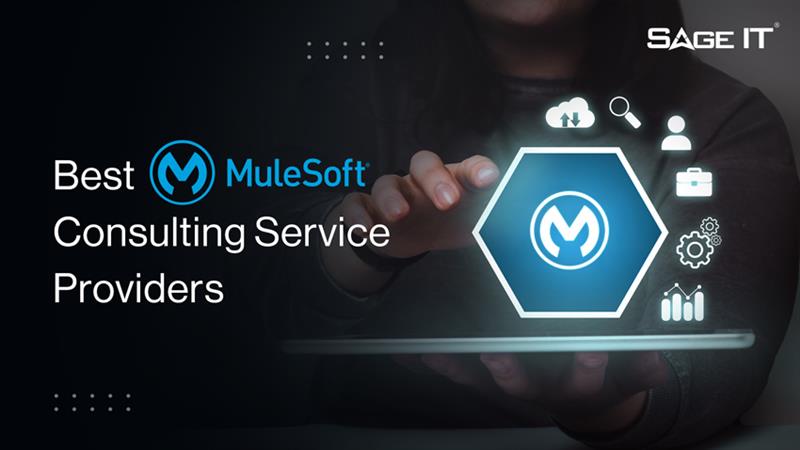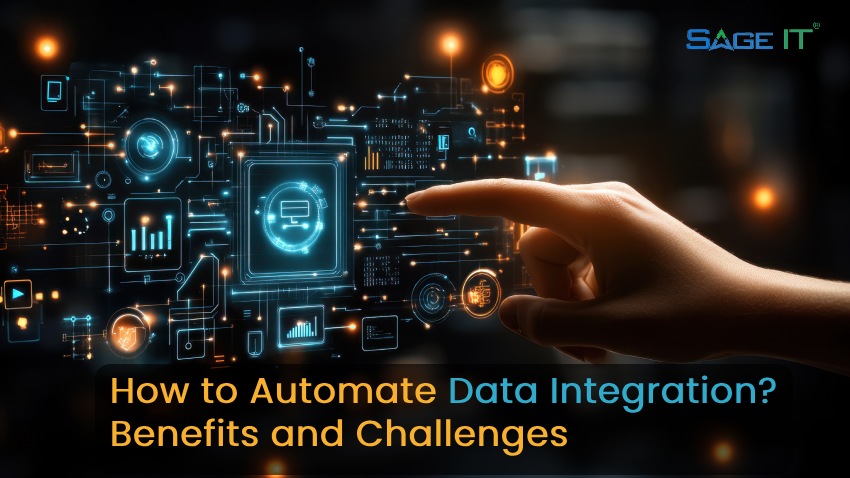Retail is moving at a pace that leaves little room for error. Real-time personalization is now woven into everyday shopping journeys. A customer receives a personalized birthday message with an exclusive discount, prompting them to revisit a favorite store.
A grocery app sends a refill reminder for baby formula just as the household is about to run out. A fashion retailer dynamically offers free shipping/discount on the shoes left in a cart, while also recommending a matching accessory before checkout.
These aren’t generic campaigns, they’re AI-driven interventions delivered in the moment, designed to lift conversion, increase basket size, and strengthen loyalty.
And the market is moving fast: the global AI in retail sector, valued at USD 7.14 billion in 2023, is projected to soar to USD 85.07 billion by 2032 at a CAGR of 31.8% (Fortune Business Insights). Retailers who don’t act risk being left behind.
AI makes it easier by tracking purchase cycles to predict when a shopper is about to run out of essentials and sending a targeted refill offer, analyzing browsing patterns to adjust prices or discounts while the customer is still on the page, and using style data from past purchases to recommend “next best” items in the cart, turning every interaction into a personalized moment that happens in real time.
What feels impossible with legacy processes becomes achievable with AI consultants who align strategy, integrate data, and deliver execution, ensuring every personalized moment translates into measurable sales growth and long-term customer value.
The Retail Challenges [Why It Feels Harder Than Ever to Keep Shoppers Happy?]
Shoppers move fast, scroll constantly, and make decisions in seconds. They expect your app to already know their size, your site to recommend products that fit their style, and checkout to be instant. If an item is out of stock or a promo feels random, they leave without hesitation.
For them, shopping isn’t just about buying, it’s about the experience, and if it doesn’t feel seamless and personal, they’ll switch to a brand that gets it right.
That’s why you might see problems like these every day:
What makes this worse is how fast customer expectations have shifted. Shoppers are no longer patient with delays or generic engagement. If your site doesn’t recommend the right item at the right time, they’re already comparing options on another tab. If your promotions don’t feel tailored, the unsubscribe button is one click away.
And the truth is, most retailers already know these gaps exist, but fixing them with traditional methods feels painfully slow. Manual forecasting, campaign testing, or clearance cycles take months. By then, competitors have already rolled out new experiences, leaving you to play catch-up.
This is where AI starts to feel less like an optional experiment and more like a necessity. Because the problems aren’t just costing lost sales today, they’re creating a long-term loyalty gap that gets harder to close every quarter you wait.
Where AI shines today
Retail margins are razor thin, around 2.5% for general merchandise and even less for grocery, which means every decision around pricing, inventory, labor, and promotions has a direct impact on survival.
You already collect oceans of data from POS systems, loyalty programs, and online behavior, but data alone won’t increase sales or deepen loyalty. What moves the needle is turning that data into daily actions, and that’s where AI, guided by consulting expertise, delivers measurable outcomes.
1. Personalized Customer Experiences That Drive Loyalty
Personalization is the first lever. When marketing campaigns are built on clusters and assumptions, customers tune out. With AI analyzing purchase histories, browsing signals, and loyalty data, every message becomes timely and relevant, whether it’s a refill reminder or a promotion tailored to a specific buying cycle.
But real value shows up only when consultants connect these engines to your CRM and campaign tools, making personalization part of your operating model, not an isolated pilot. The outcome is consistent sales lift, higher engagement, and stronger loyalty.
2. Smarter Assortments That Maximize Every Basket
Assortment planning also transforms. Beyond obvious product pairings, AI reveals patterns you wouldn’t spot on your own, like demand spikes linked to local demographics or events.
A sporting goods retailer doesn’t just stock Messi jerseys when Inter Miami visits; AI highlights opportunities to carry complementary products for nearby communities, increasing both profit and customer relevance.
Consulting services embed those insights into planograms, ecommerce recommendations, and promotions, ensuring you maximize every basket and every square foot.
3. Demand Forecasting That Keeps Shelves Full
Inventory becomes more reliable when forecasting goes beyond spreadsheets. By factoring in weather shifts, local events, and health data, AI predicts demand far more accurately, cutting waste and reducing stock-outs.
But without consulting support, those forecasts often stay disconnected. With the right integration, replenishment flows into procurement and warehouse systems, staff trust the signals, and perishable goods are restocked before they expire. The payoff is fresher shelves, reduced markdowns, and capital freed up for growth.
4. Frictionless Shopping That Enhances Experience
Store experiences evolve too. Checkout lines shrink as AI vision systems and sensors support frictionless shopping, letting customers walk out while transactions sync automatically.
These gains only stick when consultants align new systems with POS, compliance, and staffing models, redeploying labor to customer-facing roles that add value instead of processing transactions. Customers leave happier, and stores increase throughput without expanding footprint.
5. Dynamic Pricing That Balances Trust and Profit
Margins also strengthen when pricing strategies move past guesswork. AI dynamically adjusts prices by analyzing elasticity, competitor data, and demographics. Yet without governance, it can spiral into a race to the bottom. Consulting ensures dynamic pricing reflects your brand strategy and profitability goals, delivering fairness to customer’s trust while safeguarding earnings.
6. Promotions That Respond in Real Time
Promotions are another place where real-time adaptation matters. With AI, they can shift on the fly, scaling back when an item sells well, doubling down when it stalls.
But it’s consulting that makes those insights actionable, building governance, dashboards, and test frameworks so your teams know when and how to move.
The outcome: fewer wasted discounts, stronger sell-through, and promotions that actually perform.
7. Smarter Labor and Store Operations
Labor and store operations also benefit when AI is applied correctly. Shelf scans, replenishment checks, even hazard monitoring can be automated with robotics and sensors, freeing associates to do what adds real value, guiding shoppers and driving sales.
But automation only sticks when teams are retrained, roles are redesigned, and adoption isn’t resisted. Consulting services handle that change management so your people work with the tech instead of against it. Customers notice the difference immediately.
8. Store Layouts That Increase Sales Per Square Foot
Even your store layouts can become more profitable when data drives the design. AI shows where customers linger, where they ignore, and what should be moved. Consultants translate those insights into floor changes and localized promotions that maximize every square foot. And behind it all, your supply chain becomes more resilient.
With geopolitical shifts, weather events, and labor shortages constantly threatening availability, AI can run “what if” simulations and recommend supplier switches or alternate routes. Consulting services connect those simulations to procurement and logistics so you act before disruption hits, not after.
9. Supply Chains That Stay Resilient Under Pressure
The real advantage is clear: AI provides intelligence, but intelligence alone doesn’t generate ROI. Consulting services make sure it’s tailored to your business, aligned with your strategy, integrated into your systems, adopted by your teams, and measured against outcomes.
That’s how assortment planning becomes more profitable, personalization feels natural, shrinkage is contained, and supply chains remain resilient in uncertain markets. In an industry where every fraction of a margin point matters, this isn’t just innovation. It’s the path to profitable, scalable growth.
What Retailers Should Look for in an AI Consultant
Choosing an AI consultant is not about finding someone who can “build models.” It’s about finding a partner who understands the unique pressures of retail and can translate AI into measurable growth. When evaluating vendors, these are the qualities that matter most:
Deep retail expertise. Retail isn’t like finance or healthcare. Margins are thinner, consumer behavior shifts faster, and execution happens at scale across hundreds or thousands of SKUs.
The right consultant brings proven experience in retail use cases, from demand forecasting and assortment planning to personalization and shrinkage control, so you don’t waste time educating a generic AI vendor on how your industry works.
Integration-first approach. AI on its own won’t deliver value if it lives in a silo. Your consultant should have the capability to integrate solutions across your ERP, POS, CRM, and e-commerce platforms, ensuring insights flow into everyday operations. Without this, models remain proofs of concept instead of engines of revenue.
Clear track record of ROI. Any consultant can talk about algorithms. The ones worth partnering with can show case studies, benchmarks, and client outcomes: sales uplifts from personalization, reduced waste from forecasting, margin protection from dynamic pricing. This proof of impact is how you separate real partners from vendors selling promises.
Security and scalability built in. Retailers deal with sensitive customer data, PCI standards, and complex regulatory environments. Your consultant must demonstrate strong practices in data security, compliance, and system resilience, while also building solutions that scale from a single pilot to hundreds of stores without disruption.
Ongoing support and change management. AI isn’t a one-off deployment, models drift, markets change, and staff need to adapt. The best consultants don’t disappear after launch. They provide monitoring, retraining, and governance, while supporting your teams with the training and change management needed to make adoption stick.
How to Get Started With AI Consulting in Retail
Getting started with AI doesn’t have to mean a massive upfront investment or a risky leap into unknown technology. A structured consulting approach breaks the journey into clear steps that reduce uncertainty and prove value along the way.
Step 1: Diagnostic of sales and personalization challenges.
The first step is understanding where AI can make the biggest impact. A consultant works with your teams to analyze sales data, customer journeys, and operational bottlenecks. This diagnostic highlights high-value opportunities, whether it’s improving promotions, reducing markdowns, or increasing loyalty, so you know where to focus.
Step 2: Build a roadmap aligned to business KPIs.
AI initiatives succeed when they are tied directly to business outcomes. Rather than chasing trends, your consultant defines a roadmap that links AI projects to your KPIs: revenue growth, margin protection, inventory turns, or customer lifetime value. This ensures leadership buy-in and sets realistic expectations from day one.
Step 3: Launch an MVP or pilot to de-risk.
Instead of rolling out enterprise-wide at once, a pilot or minimum viable product (MVP) allows you to test AI in a controlled way. You can measure results, refine the models, and prove ROI before scaling. This approach keeps risk low while giving you evidence to guide bigger investments.
Step 4: Scale with integration and continuous optimization.
Once value is proven, consultants integrate AI into your existing systems, ERP, POS, CRM, and e-commerce, so insights flow into daily decisions. They also set up monitoring, retraining, and optimization cycles to keep models effective as conditions change. AI stops being a project and becomes part of how your retail business runs every day.
By following this path, AI consulting turns uncertainty into clarity and pilots into measurable growth. You’re not just testing technology, you’re building a framework that scales with your business.
Why AI Consulting Is the Next Step for Retailers
The pressures on retail aren’t easing, margins are razor thin, customers expect personalized experiences at every touchpoint, and supply chains face constant disruptions. AI can help address all of this, but technology alone isn’t enough. You need a partner who understands retail and can turn data into actions that grow sales and loyalty.
That’s what our AI consulting service is built for. We help you use AI to personalize offers, keep shelves stocked, improve operations, and protect margins, all in ways that fit your business and scale as you grow. And we stay with you beyond launch to make sure the results last.
Want to see how this can work for your business? Connect with our experts, we’ll walk you through how we’re already getting it done for other retailers and how we can do the same for you.
FAQs
AI helps retailers sell more and run leaner. It powers real-time personalization, forecasts demand to avoid stock-outs or waste, detects fraud at checkout, and optimizes pricing and promotions. In short, it improves both customer experience and operational efficiency.
You’re ready if you have data flowing from sales, POS, CRM, or e-commerce but struggle to turn it into decisions. If margins are thin, promotions feel hit-or-miss, or inventory planning is manual, an AI consultant can align strategy, data, and execution.
Results can show up in weeks, not years. Many retailers see measurable lifts through pilots or MVPs, like higher basket size from personalized recommendations or fewer markdowns from better forecasting, before scaling across stores or channels.
The biggest hurdles are data silos, disconnected legacy systems, and resistance to change. Privacy, compliance, and cost are concerns too. A consultant helps solve these by integrating systems, ensuring compliance, and focusing only on high-ROI use cases.
Look at what matters most to your bottom line: higher conversion rates, larger baskets, improved inventory turns, reduced waste, fewer out-of-stocks, and better margins. AI consulting ties each initiative to KPIs so you can track ROI clearly.
A strong consultant doesn’t just build models, they align AI with your business goals, integrate it into ERP/POS/CRM systems, manage adoption across teams, and provide ongoing support so AI keeps delivering results, not just pilots.
Absolutely. You don’t need Amazon-sized budgets. AI consultants help smaller retailers start with focused pilots, like personalized promotions or local demand forecasting, that prove ROI before expanding to larger initiatives.
The main risks are misuse of customer data, algorithm bias, and non-compliance with privacy rules. The right consulting partner builds safeguards into your AI projects so they stay ethical, transparent, and compliant.
Choose tools based on your goals: recommendation engines for personalization, forecasting models for inventory, NLP chatbots for customer support. An AI consultant helps evaluate models, vendors, and integrations so you avoid costly mismatches.
Start with a diagnostic to map your sales, personalization, and operational pain points. Then build a roadmap tied to KPIs, run a small pilot to prove ROI, and scale through integration. This phased approach keeps risk low and results visible.











